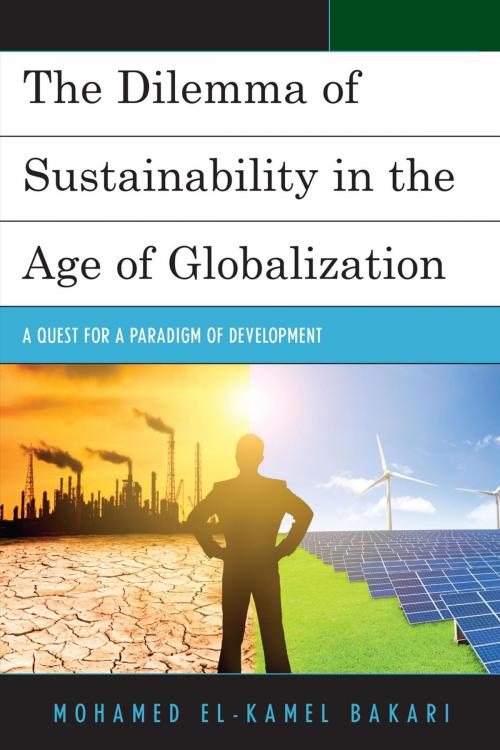The Dilemma of Sustainability in the Age of Globalization
A Quest for a Paradigm of Development
Nonfiction, Social & Cultural Studies, Political Science, International, International Relations, Business & Finance, Economics| Author: | Mohamed El-Kamel Bakari | ISBN: | 9781498551403 |
| Publisher: | Lexington Books | Publication: | September 5, 2017 |
| Imprint: | Lexington Books | Language: | English |
| Author: | Mohamed El-Kamel Bakari |
| ISBN: | 9781498551403 |
| Publisher: | Lexington Books |
| Publication: | September 5, 2017 |
| Imprint: | Lexington Books |
| Language: | English |
The Dilemma of Sustainability in the Age of Globalization: A Quest for a Paradigm of Development offers an exhaustive overview of the different political, social, economic, and cultural circumstances that paved the way for the inception of sustainable development. It particularly traces the evolution of this project in an unpropitious context of neo-liberal capitalism and globalization.
By means of an in-depth critical comparative analysis of the two phenomena of sustainable development and globalization, this book highlights aspects of both their divergence and convergence on issues such as development, man-nature relationship, and society. This distinctive approach pinpoints the theoretical and factual aspects of clash and affinity between globalization and sustainability and spotlights some potential harmonization between the two on different levels. On the whole, this book covers a few gaps in the contemporary literature that heightened the need for analysis of the viability of implementing the project of sustainable development in a context of neoliberal capitalism. Given the highly interdisciplinary nature of its topic, a holistic approach is utilized throughout this book, integrating historical, literary, economic, political, and scientific material. The first part of this book is largely based on a critical comparative analysis of the two vying paradigms of development by means of a thorough juxtaposition of their theoretical and ideological underpinnings and backed up by lucid examples, statistics, and case-studies. In later sections, this book provides an analysis and discussion of both the extrinsic and intrinsic obstacles to promoting sustainability in the current socio-economic paradigm of development, and closes by offering glimpses of hope for the future of humankind by underlining the potential of new initiatives to revive sustainable development in the 21st century.
The Dilemma of Sustainability in the Age of Globalization: A Quest for a Paradigm of Development offers an exhaustive overview of the different political, social, economic, and cultural circumstances that paved the way for the inception of sustainable development. It particularly traces the evolution of this project in an unpropitious context of neo-liberal capitalism and globalization.
By means of an in-depth critical comparative analysis of the two phenomena of sustainable development and globalization, this book highlights aspects of both their divergence and convergence on issues such as development, man-nature relationship, and society. This distinctive approach pinpoints the theoretical and factual aspects of clash and affinity between globalization and sustainability and spotlights some potential harmonization between the two on different levels. On the whole, this book covers a few gaps in the contemporary literature that heightened the need for analysis of the viability of implementing the project of sustainable development in a context of neoliberal capitalism. Given the highly interdisciplinary nature of its topic, a holistic approach is utilized throughout this book, integrating historical, literary, economic, political, and scientific material. The first part of this book is largely based on a critical comparative analysis of the two vying paradigms of development by means of a thorough juxtaposition of their theoretical and ideological underpinnings and backed up by lucid examples, statistics, and case-studies. In later sections, this book provides an analysis and discussion of both the extrinsic and intrinsic obstacles to promoting sustainability in the current socio-economic paradigm of development, and closes by offering glimpses of hope for the future of humankind by underlining the potential of new initiatives to revive sustainable development in the 21st century.















